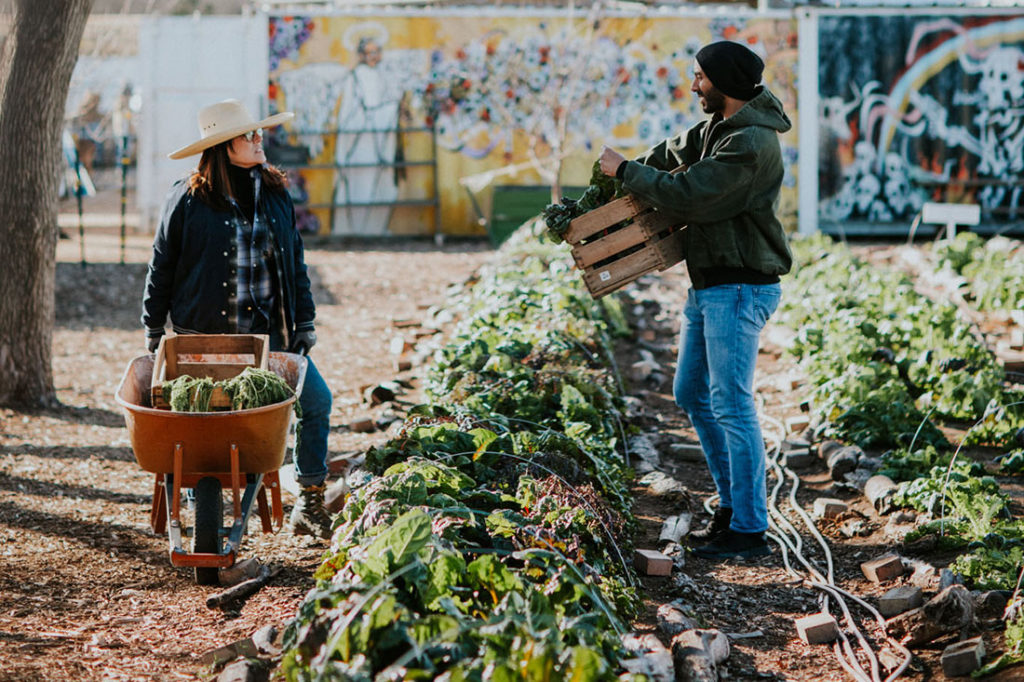“Children in Africa are starving,” goes the dinner-table proverb. It’s a saying parents invented to beguile picky children into eating their crusts or preventing too many leftovers from cluttering up the refrigerator. Reflect on this cavalier expression a bit longer, though, and you’ll find it also flings the problems of hunger and poverty across international waters to a foreign continent that may as well be imaginary to the average American mind. In reality, “children a few miles away are starving” too, but there’s a reason Americans don’t use that phrase. It’s a problem that’s too close to home, so it’s not a conversation we like to have.
Idiom dissection wasn’t how I had planned to begin this story before my phone interview with Daron Babcock. I had intended to ask him about how he started Bonton Farms, an urban farm he founded in a South Dallas food desert more than a decade ago after abandoning a cozy corporate job and six-figure salary.
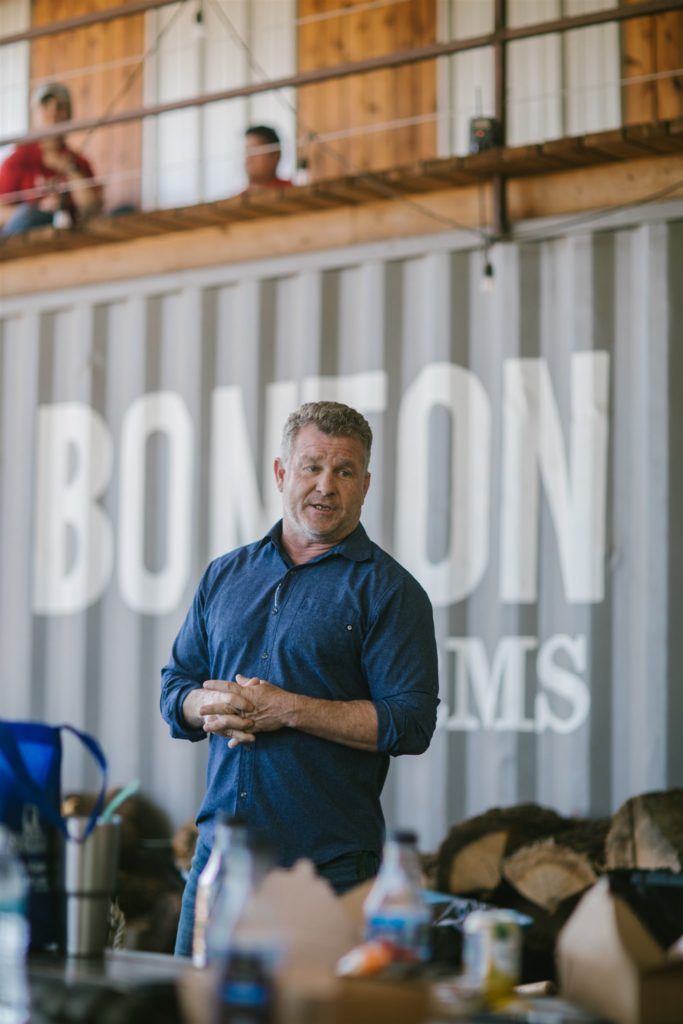
I had intended to ask him about Bonton, a neighborhood where men live 11.7 years fewer than the average male lifespan in the county—a county with more incarcerated residents than any other ZIP code in Texas.
I had intended on asking him how many goats lived on his farm.
But as we start talking, Babcock calmly makes it clear he doesn’t want my story to be about how he started Bonton Farms. Nor should it be about the crime, drug use and mortality rates in Bonton today. He tells me people have been talking about the symptoms of a problem for far too long, and in doing so they wind up hitting the bullseye of the wrong target.
“The reason these problems persist in a world where they shouldn’t,” Babcock says, “is because we’re not having the right conversations.”
So, we had the right one.
A food desert is an urban community whose residents need to travel a mile or more to get to a grocery store. It’s an official USDA designation that encompasses about 10% of the U.S. census tracts and about 13.5 million Americans. Without access to fresh food, families in food deserts “grocery shop” at variety stores, liquor stores and fast-food chains. Children rely on the free school lunches and often go hungry on weekends.
Unlike literal deserts, however, they don’t form naturally.
Before it became Bonton the food desert, for instance, the neighborhood was a post-emancipation African American settlement. Babcock tells me that Bonton, like many segregated communities at the time, actually thrived until the 1940s because of the community-driven approach its residents embraced to survive. But as the racially segregated neighborhood grew, housing became scarce and residents began moving nearer to white neighborhoods. The overflow resulted in unofficial campaigns of terror bombings—Bonton was originally called “Bomb Town”—and official campaigns for public housing and redlining, an initiative backed by then-Dallas Mayor Wallace Savage “to keep them from overflowing into white areas.”
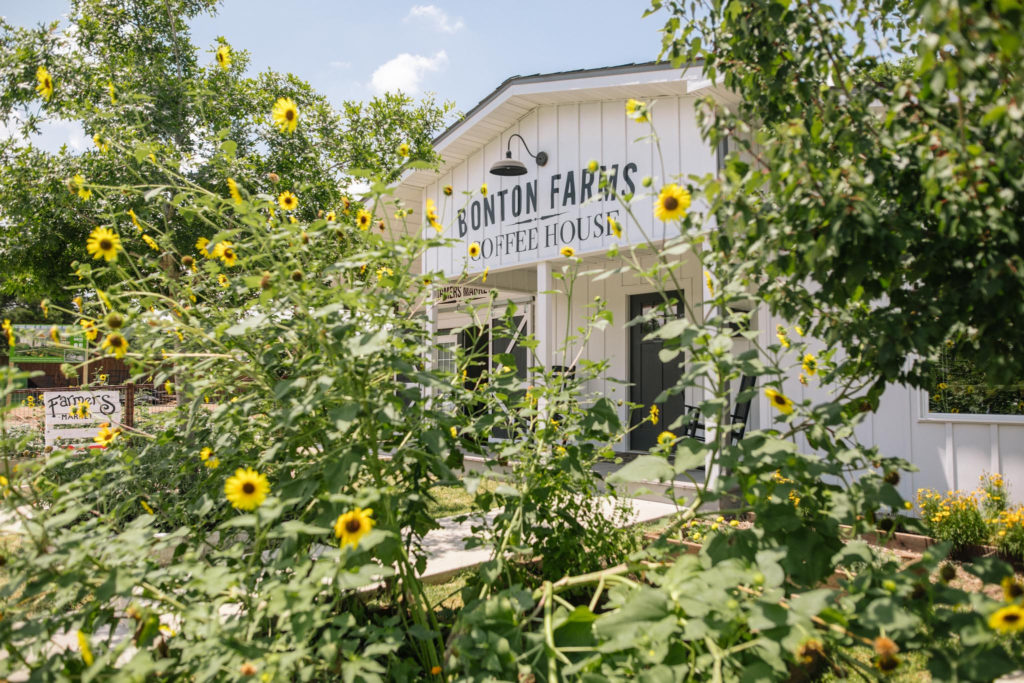
Since then, the prevailing narrative around bottlenecked communities such as Bonton has been that they are unsafe. The expectation is that if a grocery store were to be opened, it would just be robbed. So businesses redirect to comfier areas and attention redirects to comfier topics. We see the symptoms on the surface, so we look away—and for generations, communities such as Bonton are left without adequate resources.
When humans suffer, they want others to suffer along with them. That’s an axiom Babcock has experienced all too well: In Bonton, he sees kids beaten up by their peers for getting good grades. In the mirror, he sees a man who started self-medicating with cocaine and alcohol after losing his wife to cancer. He’s more than 20 years sober now, but it took a support system of family and friends to sever the cycle that started so long ago.
“I’m here today because when I couldn’t carry myself, they picked me up and carried me,” Babcock says.
Babcock visited Bonton for the first time in 2011. His friend who worked in prison ministry had invited him to join an outreach meeting for some men who had returned to Bonton after years of incarceration.
“What I saw in them was me,” Babcock says: “a hopeless person that’s still breathing but dead. But the thing they didn’t have was the people to pick them up and carry them.”

Although he was face to face with people just like himself—people who needed people—nothing was changing in Bonton despite the service programs he was part of every Saturday. He asked himself why he was there at all if he wasn’t making a difference, and the only answer he found was that it was making him feel better about himself.
Asking yourself an honest question like “Why am I here?” brings you to a place where you can decide whether self-gratification is enough of a reward. For Babcock, it wasn’t. So in 2012, he sold his house in Frisco (a suburb of Dallas), quit his job of eight years, and moved to one of the poorest areas in Dallas.
“It was really hard because everything I had built my life on, I had to let go of,” he says. “But in hindsight I didn’t let go of anything. I was rescued from the things that would have let me live shallowly. I was blessed with the gift of things that could never be taken away.”
Before Bonton Farms was a fully flourishing farm, it was a modest little vegetable garden Babcock had planted in a vacant lot next to his new house. One day, back in 2012, his friend was carrying a bag of vegetables he had harvested from Babcock’s garden across Bonton. He passed someone who saw the food and offered $3 for it. The friend took the deal, and the veggies traded hands. It would prove a providential sale.
A few weeks earlier, a woman had bought heroin from the liquor store across the street and subsequently overdosed and died. Code enforcement officers, who were in the middle of shutting the store down, saw Babcock’s friend selling $3 worth of fresh, homegrown produce—an illegal transaction for an unlicensed garden, per a Dallas ordinance.
“Mind you, we were standing maybe 10 feet from where this lady died from buying dope in a licensed business,” Babcock says, “and that business had been there a long time doing that. And then we’re getting threatened with a ticket for selling vegetables? I was so incensed that I went to City Hall to pick a fight.”

Instead of a fight, Babcock found people who were willing and even eager to do something about a problem they knew needed to be fixed. In fact, Babcock says he can’t imagine a more supportive city and county—a seismic shift from the Dallas legislation of 75 years ago. After a few weeks meeting with different advocates in City Hall, Babcock wound up with a signed agreement to start an “illegal” farm on a 1.25-acre plot of land in Bonton. The agreement was to be a trial run that would test whether urban agriculture in Dallas could help alleviate the food desert crisis and its symptoms. The agreement was the genesis of Bonton Farms.
Bonton Farms is not a community garden. Nor is it welfare or a charity. It was intentionally designed to generate revenue, which in turn generates jobs and a thriving economy. Babcock explains how “serving” an underserved community is an unsustainable approach to fomenting real change.
“Showing up to ‘serve’ an underprivileged community means that I’m above you and you need me,” he says. “You don’t mean it that way. But that’s what it is. So what we need to do is show up to be present.”
This idea of presence is an integral part of Babcock’s grassroots strategy to end food deserts. Metaphorically, it’s Babcock himself moving to Bonton to be present in a suffering community and share its load. More tactically, it’s Bonton Farms.
Solving the food desert crisis in America is not as simple as building more brick-and-mortar stores. That would require (based on the USDA’s definition of a food desert) constructing a new supermarket in every square mile of every major city without one. Babcock’s solution is more realistic and more sustainable.
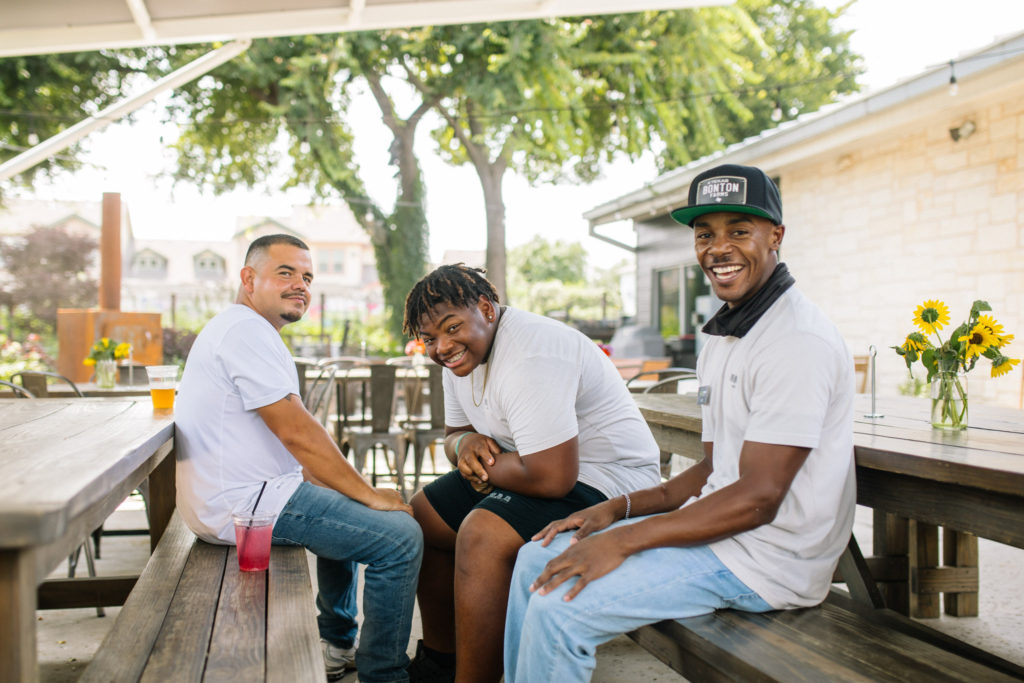
From an economist’s perspective, areas like Bonton are costly. They require high levels of service, are financially unsustainable and don’t contribute to the city’s wealth. As long as they aren’t bringing anything to the table, Babcock says, they remain voiceless. So what can they bring to the table to be seen and heard, rather than merely tolerated?
The Bonton Farms approach: Transform them into the breadbasket of our cities. Today, fruits and vegetables in the U.S. travel on average 1,500 miles before we buy them in grocery stores. So why not grow them in local urban areas that are otherwise considered valueless? That’s sustainable on economic, environmental and social levels.
And that’s exactly what Bonton Farms is trying to prove. The farm has paid employees, not volunteers. The food they produce is sold to both Bonton residents and local Dallas restaurants. The profits help fertilize the community in other ways, such as with rent-to-own programs to help residents find stable housing, build credit and keep jobs. They are also working to establish a charter school in town.
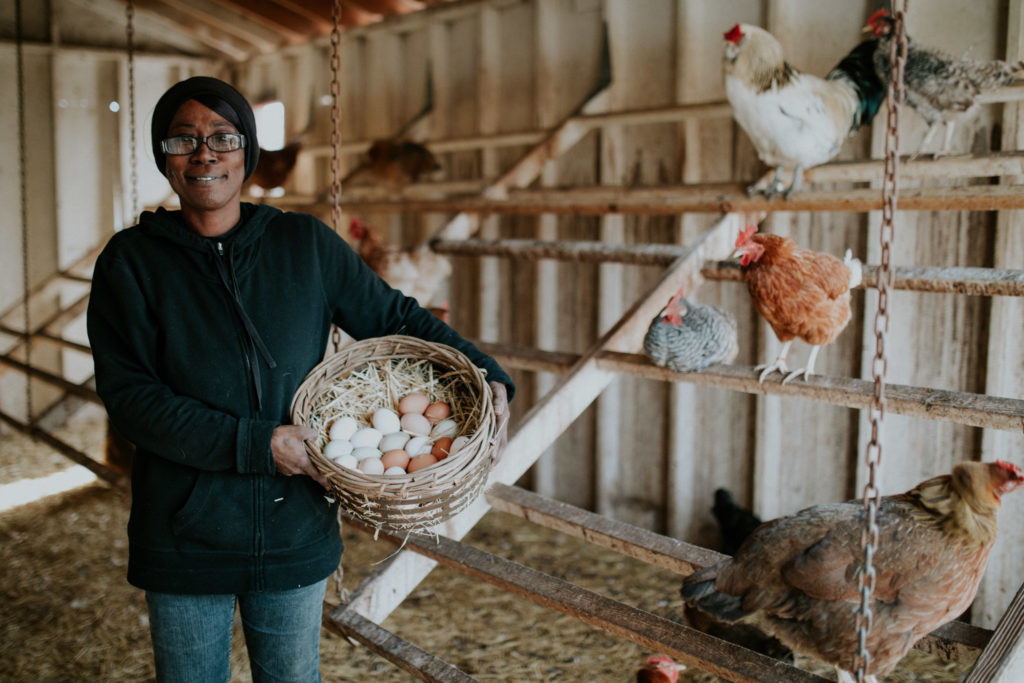
In socioeconomic terms, the urban farm model is providing Bonton with the opportunity to be present in Dallas as a cohesive, self-sustainable community that can finally contribute to (and be integrated with) a thriving metroplex. But Babcock is not creating this opportunity alone.
“The reason Bonton Farms works so well is because it’s led by the community,” says Babcock. “We aren’t here coming up with ideas to fix people or to fix their community. They have the ideas.”
But in most cases, communities such as Bonton don’t have the power, the influence or the voice to bring those ideas to life on their own. Seeds can’t grow without being watered; voices can’t be heard without having real conversations.
“Turns out that we’re all human beings,” Babcock says. “Because we share humanity, our needs are basically the same.” He’s talking about food accessibility, but he’s also talking about the human condition.
Humanity’s roots run deeper than what we see on the surface. So do the roots at Bonton Farms. It’s not just about helping food desert residents grow vegetables, build a line of credit or afford health care. Those are crucial components of living, of course. But Bonton Farms, like my conversation with Babcock, is about sustainable living of another kind, too, something he considers to be much more real and much more substantial.
“We’re spiritual beings,” Babcock says. “We need each other. We long for each other. We long to be a part of communities where we’re deeply known and belong.”
Babcock tells me that the Bonton community doesn’t have to pretend to be anything it’s not. He calls the level of honesty there “shocking.” He’s had unprompted conversations with complete strangers in Bonton about poverty, addiction, homelessness, domestic abuse and prostitution. It’s not “opening up,” because in Bonton, there’s nothing to hide. He compares the shocking honesty in Bonton to the shocking dishonesty in more affluent communities.
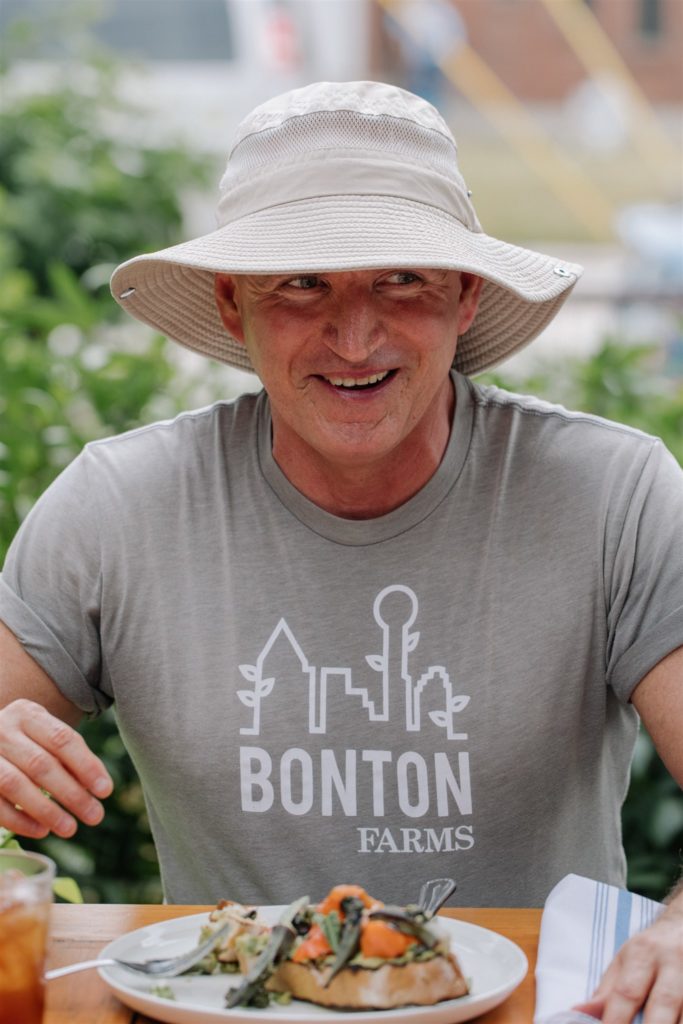
“We try to live lives that are based on material things, but there is something deep within us that calls for soul restoration,” he says. “When you can bear life without all the facades you’ve built up to feel safe and to be accepted, and just be vulnerable and honest, and you can shed the weight of that to be authentic, there’s a freedom there. Whatever your material circumstances are, they become enough. The true level of wealth is not what you have but what you’re OK with.”
Babock is demonstrating that food deserts are not endemic—they are a product of circumstance and of continued complacency. There are things we should not be OK with, just as there are conversations we should be OK with having.
Using his work at Bonton Farms as a model, Babcock is currently finalizing a proposal with the city of Dallas that he believes will eradicate food deserts in North Texas within 36 months. The proposal outlines a sustainable and replicable solution that he hopes will solve the national food desert crisis in only five years.
This article originally appeared in the November/December 2022 Issue of SUCCESS magazine. Photos by ©Christina Childress Photography



